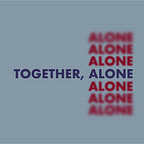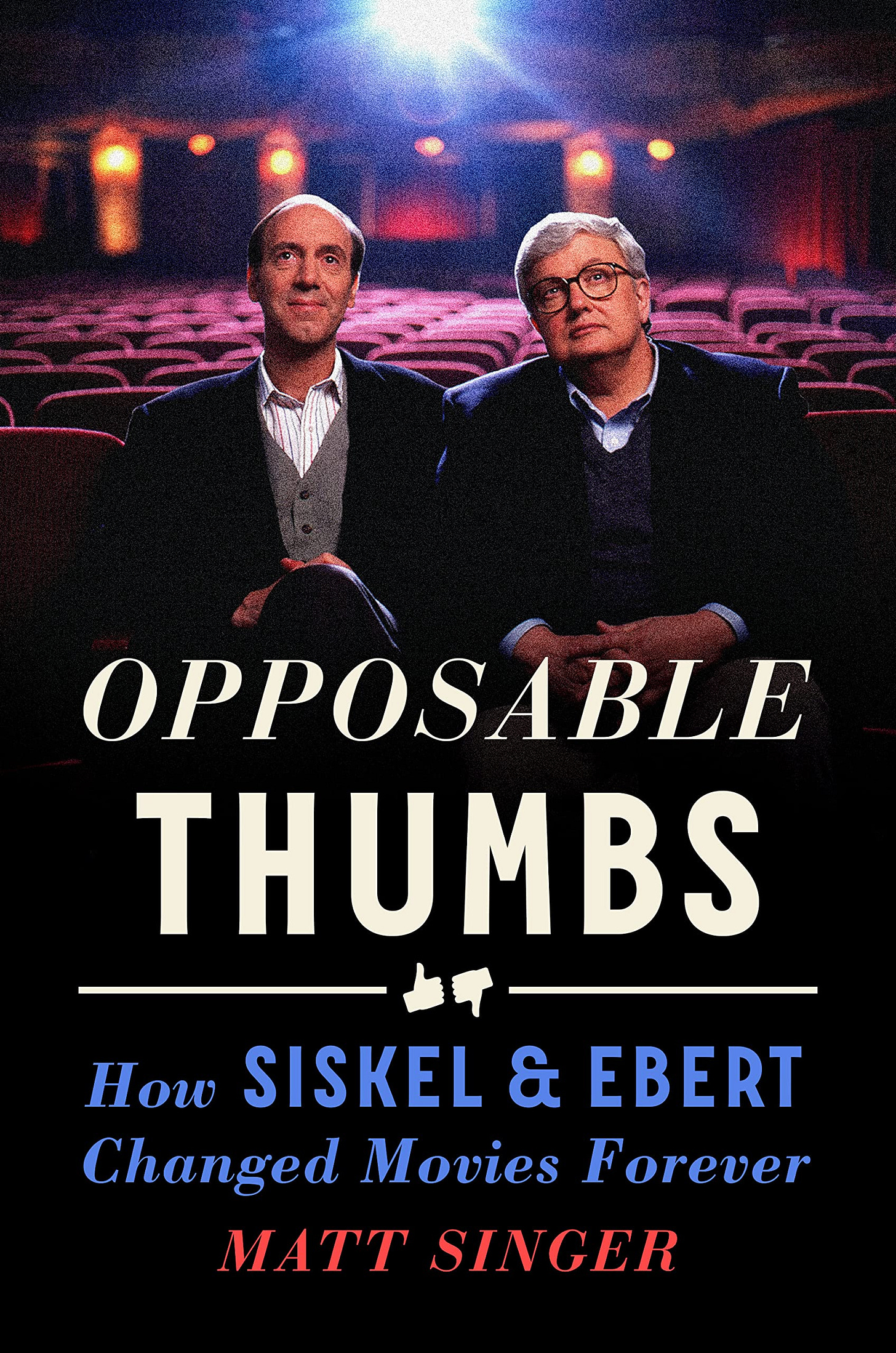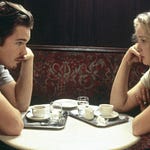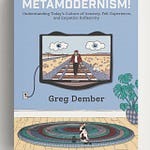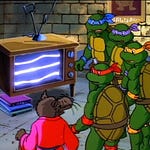We’re trying something new on Together, Alone. In the past, we’ve had a monthly conversation about a show, movie, or YouTube video, written out like a chat in a messaging app. This month, we invited a guest and we thought it would be a great occasion to post audio of our conversation. We’ll do this each month, sometimes with a guest, sometimes the two of us. If you have guests you’d love to hear us talk to, or shows/movies you’d like us to watch and discuss, please let us know.
Our guest this month is Matt Singer, a film critic and author of the new book Opposable Thumbs: How Siskel & Ebert Changed Movies Forever. We watched a 1989 episode of Siskel & Ebert where they talked about the movies that inspired them to be critics, and had a wide-ranging discussion about the show, criticism, and Matt’s book.
You can listen to the conversation in the player above. And below are a few highlights, condensed and edited for reading.
On the Episode (which you can watch here)
Matt: I think it's a really interesting episode, and it was certainly valuable in my research because Gene Siskel was a famously private person. He did some interviews, which I used in the book, but this episode was very helpful in seeing his formative years through his own eyes. In terms of the movies that influenced him—Dumbo, he's talking about how that movie he loved as a child, and it's about a mother being separated from her child. Well, Siskel’s parents both died when he was really young. And so the way that he connected with that story, I thought was very illuminating.
…
There's another episode that's similar to this where they talk about the movies they loved as kids specifically. It's different movies, but it's the same kind of concept—they're talking about themselves more than the movies in a way. I do think that some critics, they do like to present themselves as these objective arbiters of cinematic truth, and, you know, maybe even Siskel and Ebert liked to do that sometimes to be honest with you, but all critics, in my opinion, are sort of the sum of their experiences, and the sum of the things that made them who they are, and it's ultimately all subjective. So I love to see behind the curtain in a way of a film critic, and that's what you get in this episode.
On Meanness and Criticism
Arielle: I was surprised at how tenderhearted [the episode] was…just this really heartfelt emotional conversation about the films that shaped them. I'm curious to talk a little bit about the stereotype of critics as mean, because I feel like that's become very much a part of current discourse, especially thinking about online spaces where you have actors who can directly respond to critics. And this really does change the tenor of discourse, I think, significantly more than having a show where we're watching Siskel and Ebert for twenty-two minutes. We don't really have other voices, we're actually focused on their perspectives. Certainly, we can bring our voices into the conversation afterwards, or think about or agree or disagree, but it seems like a really different world. I'm curious about the stereotype of critics this mean, because it seems like you find that to be valuable and use the term honest when discussing it.
Matt: Certainly you can be honest without being mean. Those two things can coexist in different spaces. Sometimes Siskel and Ebert could be mean…But, yeah, I do think that that is the stereotype…And sometimes I think some critics get more of a kick out of being mean than others. But I do think that it is somewhat an incomplete view of critics, including Siskel and Ebert. When they were asked, what is the best part of doing your show? Their answer was very often a variation of “We love when we love a movie, especially a little movie that people haven't heard of before, and we can say ‘Go see this movie.’” And there are many, many examples of that. You know, they're called film critics. That's the name of the job. That's the name of the pursuit, but, it's often film advocacy, and I think that that was what the show often did, and was really valuable for and certainly had a big impact on people like me, because when they would say “Go see this movie,” I would go, “I gotta go see this movie.”
…
Is it a stereotype? Yes. Is it inaccurate? I would say it's not entirely accurate. It's not the complete picture, like so much else on social media, it is reductive, and it's like the 140-character version. You're not getting the full story.
I think if we asked most film critics…”Do you like being mean?” they would say, not most of the time. Maybe in a very rare circumstance where a movie is truly awful or truly hateful, or it's the opposite of an empathy machine and it's putting horrible ideas out into the world, then maybe you might enjoy being mean, but for the most part, you want movies to be good. Nobody does the job of being a film critic, especially today when there's no money in it, nobody's doing it because they hate movies. They're doing it because they love movies, and they love going to the movies, and they love thinking about the movies. So why would they want to see bad movies?
Gabe: You quote them saying in the book, a bad movie is taking two hours of your life away. You only have so much time on Earth and why spend it with a bad movie? … To me, that came across as the perspective of, yes, they're getting older, they're thinking more about their lives and everything, but also as the ultimate reflection of people who have spent their lives in the movie theater, who really lived to go to movies…That that love of just being at the movies and thinking about movies really came through [in the show]…Siskel and Ebert, they would get so animated, they would have these big fights about what they thought of a movie and whether to recommend it. It's just so motivated by a passion for the art form in a way that I think, doesn't always come through in a lot of works of criticism.
Matt: Yeah, I mean, especially today, if you hate movies, why would you do this? There's just so many better ways to make a living than this. It's baffling to me. And it is a little weird when people assume that movie critics just hate movies. Why would you do this? …Go be a carpenter, go, I don't know, be a jazz musician. Do something with yourself that isn't immersing yourself in this thing that you hate.
Listen to the audio above for the rest of the interview. And feel free to send us suggestions for what to watch and for guests to invite to join us.


